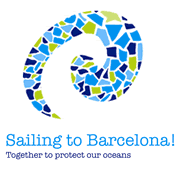Increasingly, global trade and communication are directly contributing to the transportation of fauna and flora across biogeographical boundaries. Although species which are suddenly introduced into new environments may fail to survive, they often thrive and become invasive. This process, together with habitat destruction, has been a major cause of extinction of native species throughout the world in the past few hundred years. The damages brought on by alien invasive species introductions have also caused huge economic costs around the world, and continue to do so.
The gathering of many vessels as well as thousands of people in Barcelona for the Congress could pose a risk to the biodiversity of the region and country they visit. IUCN would like to reduce that risk to the minimum and so is encouraging Sailing to Barcelona participants to avoid introducing any potential invasive marine species, by following a set of guidelines. The Sailing to Barcelona team has worked closely with IUCN´s Global Invasive Species Coordinator and the Invasive Species Specialist Group (ISSG), which is part of IUCN’s Species Survival Commission (SSC). ISSG comprises a global group of 146 scientific and policy experts on invasive species from 41 countries. It provides advice to IUCN members, conservation practitioners, and policy-makers on the threats from invasives and on control or eradication methods.
Alien Invasive Species
IUCN is taking measures to reduce alien invasive species (AIS) during its World Conservation Congress, including marine invasives through Sailing to Barcelona.





